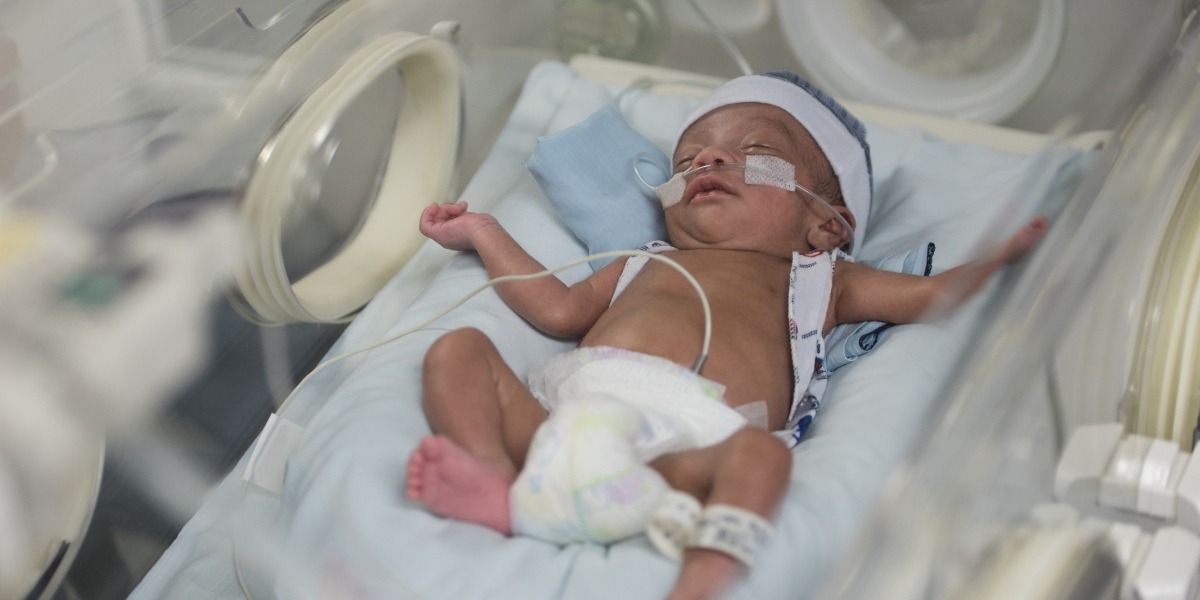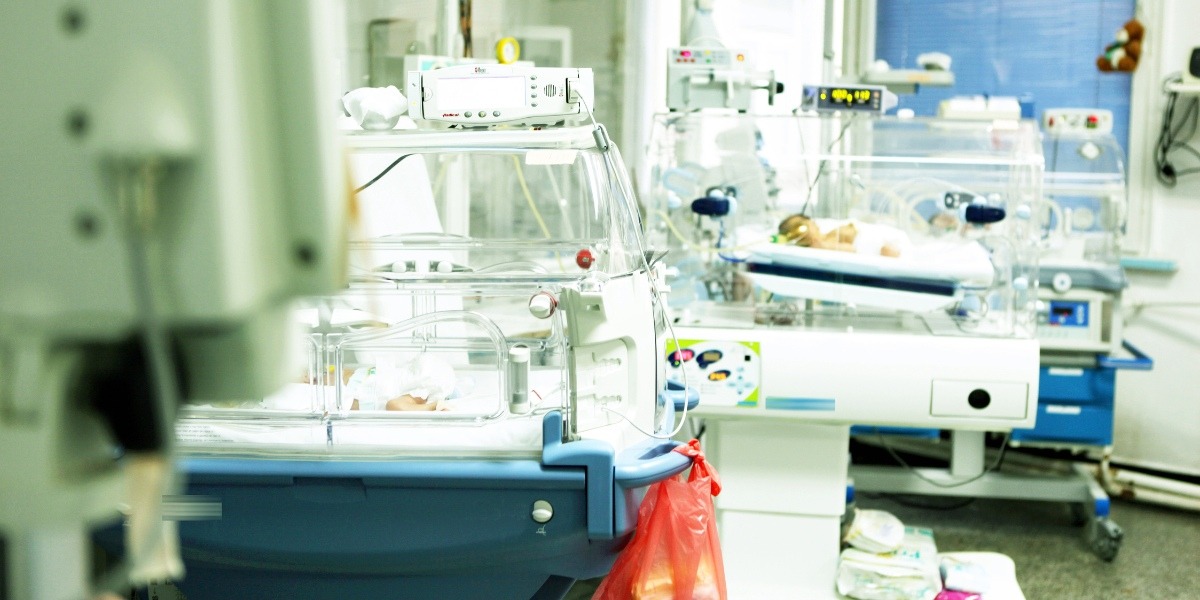Hypoxic-Ischemic Encephalopathy (HIE)
WHAT IS HYPOXIC-ISCHEMIC ENCEPHALOPATHY (HIE) BIRTH INJURY?
Hypoxic-Ischemic Encephalopathy (HIE) is a type of birth injury. It occurs when an infant’s brain does not receive sufficient oxygen during the birthing process. This lack of oxygen (hypoxia) and blood flow (ischemia) can lead to brain damage and long-term complications, significantly affecting a child’s life.
If the hypoxic-ischemic episode during labor and delivery is severe enough to damage the brain, it leads within 12 to 36 hours to a brain injury known as hypoxic ischemic encephalopathy (HIE).
Are Seizures at Birth, Baby Seizures, or Neonatal Seizures a Sign of birth injury?
Baby seizures, also known as neonatal seizures, may appear at birth and can be a sign of HIE. There is a connection between HIE, seizures at birth, and medical malpractice.
Newborns with HIE will experience symptoms including:
- Neonatal Seizures
- low muscle tone (hypotonia)
- irregular heartbeat
- irregular breathing
- poor feeding ability
- low to very low activity levels
HIE can cause lifelong disabilities, including cerebral palsy, developmental delays, seizure disorder, and impaired growth of the brain and skull (microcephaly). As a parent, it is important to understand the causes, symptoms, and available treatments for HIE. This is the first step in ensuring the best care for your child.
It is also essential to get professional help from a birth injury lawyer if your child has HIE. In many cases of HIE, the cause can be traced to medical malpractice. A birth trauma lawyer can help you discover what happened.
A medical professional’s failure to uphold the standard of care may have caused your child’s condition. If this is the case, we will help you through the legal process of filing a birth injury case. Malpractice happens when doctors or healthcare providers responsible for the safe delivery of your child make a mistake.
The causes of Hypoxic-Ischemic Encephalopathy
HIE can be caused by various factors that interfere with the normal delivery of oxygen and blood flow to the infant’s brain.
HIE can result from a variety of factors, including:
- Umbilical cord problems, such as compression, prolapse, avulsion, or vasa previa.
- Placental complications, including placenta previa or abruption.
- Uterine rupture.
- Perinatal asphyxia
- Prolonged or difficult labor can decrease the baby’s oxygen supply.
Recognizing the symptoms of HIE
Immediately following delivery, symptoms of HIE in newborns can include:
- Weak or absent reflexes and muscle tone
- Very low Apgar scores at 1 and 5 minutes
- Initial inability to breathe on their own (requiring resuscitation)
- Initial need for supplemental oxygen (requiring oxygen mask or intubation)
- Seizures
- Difficulty breathing, sucking, swallowing, or feeding
- Blue or pale skin color
- Abnormal movements or posture
The diagnosis of Hypoxic-Ischemic Encephalopathy
These newborns will have abnormal test results such as:
- an umbilical cord blood gas test confirming metabolic acidosis
- electroencephalogram (EEG) results documenting abnormal electrical activity in the brain
- abnormal brain MRI images documenting brain bleeding, brain lesions, and which regions of the brain have been affected by dying brain cells (apoptosis) and damaged brain tissue (necrosis).
The treatment of Hypoxic-Ischemic Encephalopathy
Infants with HIE require neonatal intensive care and typically spend several weeks in the NICU. A baby with HIE may be transferred, via ambulance or life flight, from the hospital where the birth occurred to a higher level NICU if the birth hospital does not have a high-level NICU.
The only effective treatment for HIE is to lower the newborn baby’s brain temperature. Cooling techniques include either a cooling blanket for whole-body cooling or a selective head cooling protocol.
The lowered body temperature (hypothermia) is maintained for up to the first 72 hours of life. It is followed by a rewarming phase, during which time baby seizure activity may increase. Once the baby’s body temperature rises to normal, the baby undergoes a brain MRI to look for signs of brain damage.
Clinical trials have shown that for every degree a baby’s body temperature is lowered, the baby’s brain and body functions slow down by 10 to 15 percent.
This “braking” can slow and stop the brain damage that occurs when brain cells are demanding a greater supply of oxygen than the body has available.
Head cooling or total body cooling has been shown to decrease death and disability in infants with moderate HIE. This does, however, have less benefit in infants with severe HIE.
Children affected by HIE may experience developmental delays or disabilities as they grow. These delays or disabilities may include cognitive impairments, motor function difficulties, and speech and language issues.
The child may develop signs of cerebral palsy or other neurological disorders as they grow. This emphasizes the importance of consulting with a knowledgeable cerebral palsy lawyer.
Seeking care and support for your child with HIE
Although there is no cure for HIE, certain treatments can significantly improve a child’s prognosis.
Following discharge from NICU, treatment is based on the specific symptoms of the infant and may include:
- oxygen therapy
- anti-seizure medications
- muscle relaxant medications
- possibly surgery
From infancy onward, physical therapy, occupational therapy, speech therapy, clinical nutrition therapy, customized, durable medical equipment, and individualized learning programs can support their growth and development.
Helpful strategies for parents of infants with Hypoxic-Ischemic Encephalopathy (HIE)
There are a variety of developmental challenges, including cognitive delays and physical disabilities. While HIE can be a complex condition to manage, there are many things parents can do to help their child thrive.
- Early Intervention is Key
One of the most important things parents can do for their child with HIE is to seek out early intervention services. This could include physical therapy, speech therapy, occupational therapy, and nutritional therapy. The early intervention aims to help your child develop the skills they need to grow and develop. Starting therapy as early as possible gives your child the best chance for success.
- Create a Supportive Environment
Children with HIE may need extra support as they grow and develop. As a parent, it’s important to create a supportive environment that promotes your child’s health and wellness and encourages your child to explore and learn.
Assembling a team of medical professionals involved in your child’s care and development is important. In addition to a pediatrician, your child may need to be regularly seen by their pediatric neurologist, as well as occasionally evaluated by a pediatric orthopedist, pediatric gastroenterologist, and pediatric ophthalmologist.
Adapting your home to be more accessible for your child may be necessary. Additionally, you should seek out play activities suitable for their developmental level. When your child feels supported and encouraged, they are more likely to thrive.
- Advocate for Your Child
As a parent of a child with HIE, you will likely need to become an advocate for your child. Working with healthcare providers, educators, and therapists could help ensure your child gets the necessary care and support.
This could be beneficial for your child’s health and well-being. It’s important to be proactive and communicate clearly with the people involved in your child’s care. Be bold and ask questions. Speak up if you feel your child’s needs are not being met.
- Take Care of Yourself.
Caring for a child with HIE can be challenging and stressful. Taking care of yourself is essential for being the best caregiver for your child.
Take breaks when necessary. Incorporate self-care activities, such as exercise or meditation, into your routine. Seek out support from people who understand your situation.
- Celebrate Your Child’s Progress
Finally, it’s important to celebrate your child’s progress. Children with HIE may reach developmental milestones at a different pace than their peers, but every accomplishment is worth celebrating.
Take time to acknowledge your child’s progress, no matter how small it may seem. This can help build your child’s self-esteem and can be a source of encouragement for you as a parent.
If you have questions about filing a medical malpractice claim, call the experienced birth trauma attorneys at The Yost Legal Group. We carefully investigate and file birth injury claims, cerebral palsy claims, HIE claims, and medical negligence cases on behalf of our clients.
Our birth injury attorneys are here to support you and guide you through the legal process. We make filing birth injury lawsuits as stress-free for our clients as possible.
Being a parent of an infant with Hypoxic-Ischemic Encephalopathy can be challenging.
It’s important to remember that there are many things you can do to help your child thrive.
- Seeking out early intervention
- Creating a supportive environment
- Advocating for your child
- Taking care of yourself
- Celebrating your child’s progress
These actions can give your child the best possible chance for success. Remember, every child is unique, and there is no “one-size-fits-all” approach to caring for a child with HIE.
With patience, perseverance, and a commitment to your child’s well-being, you can help them reach their full potential.
How The Yost Legal Group Can Help You
At The Yost Legal Group, we understand the challenges HIE can present to a family. Our experienced CP lawyers are dedicated to helping families like yours. We work hard to seek justice and the financial compensation needed to provide lifelong care for your child.
Our medical malpractice attorneys will investigate your case, fight for your rights, and seek the financial compensation you need to provide for your child’s care.
We have years of experience assisting parents in understanding the complex legal process and advocating for their child’s future.
Contact The Yost Legal Group today at 800-967-8529 for a free, confidential consultation with an experienced birth injury lawyer. Let us stand by your side as you seek justice for your child’s HIE and ensure the best possible future for your family.
Contact Us Today
To learn more about HIE and how we can help you, contact The Yost Legal Group today. Call us at 800-967-8529 for a free, confidential consultation with an experienced birth injury lawyer. Let us be your ally and guide as you navigate the road toward a better future for your child.

